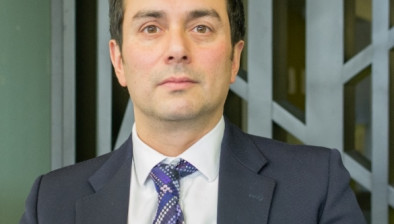NI Court of Appeal: Man involved in making and distributing indecent images of children fails to get sentence reduced

Northern Ireland’s Court of Appeal has dismissed all grounds of appeal brought by a 62-year-old veteran involved in making and distributing indecent images of children.

About this case:
- Citation:[2023] NICA 21
- Judgment:
- Court:NI Court of Appeal
- Judge:Mrs Justice Keegan
The man had been sentenced to 20 months’ imprisonment in relation to 37 criminal counts following an investigation involving over 115 explicit images.
Background
This was an application to appeal a sentence imposed by Mr Justice Lynch KC on 2 December 2022. The sentence was imposed following guilty pleas to 37 counts relating to a series of offences involving the making and distribution of indecent images of children, attempting to cause a child to watch a sexual act, and possession of prohibited images.
The ultimate sentence imposed was 20 months’ imprisonment, involving 10 months in custody and 10 months on licence. Various other ancillary orders were made, including a Sexual Offences Prevention Order.
The counts covered distributing an indecent image of a child; making indecent images of children, possession of prohibited images; possession of extreme images; and attempting to cause a child to watch a sexual act.
The conviction followed a police search of the appellant’s home in May 2017, where several electronic items were seized for examination. This included a mobile telephone and computer. A total of 115 images were found on the appellant’s mobile telephone and 104 of these were classed as extreme. A further 74 images were found on the appellant’s laptop, of these 28 were classified as extreme. Two videos were also found on his laptop.
It was apparent that the appellant had shared and distributed images that included female children aged between six and 14 years of age engaging in various sexual acts. The appellant also engaged in sexualised conversations with a female, who he understood to be 15 years of age, and to whom he sent sexually graphic images, which included images of bestiality.
He also referred to his own sister in relation to rape in various online conversations.
The appellant was interviewed in October 2020, where he initially denied seeing anything indecent except for a pornographic cartoon. However, when the evidence was presented to him he accepted responsibility, but claimed not to recall accessing the images.
He referred to being the victim of physical abuse at the hands of his father and suffering from PTSD after combat experience in the military. He also denied abusing his sister.
When the evidence of distribution was put to him, he replied: “So sorry”.
The sentencing remarks
During sentencing, the judge referred to what he described as “strong mitigating factors in this case”. This included the appellant’s clear record, his excellent work record, a certificate of exemplary service in the army, his acceptance of responsibility, and remorse.
The judge also referred to a consultant psychiatrist report which highlighted various issues relating to the appellant’s mental health, his service in the army, his use of alcohol and elicit drugs as a coping mechanism, and his willingness to engage in psychological therapy.
His probation report assessed him as exhibiting a high likelihood of reoffending, but not posing a risk of significant harm.
The judge also considered a point which was again raised on appeal, being the issue of delay. The appellant was arrested in May 2017 but only interviewed in October 2020, resulting in a delay in bringing the matter to trial. The trial judge stated that the appellant was therefore entitled to some credit for the delay and that this should mitigate his sentence.
Points on appeal
The first appeal point argued that the judge did not set out a starting point for the sentence, after applying aggravating and mitigating factors and assessing the delay. The court accepted that the judge should have stated what sentence he would have reached prior to reduction for the plea.
However, they also found that this omission was not fatal, as there was enough information in the sentencing remarks to work out exactly what considerations the judge took into account, and whether or not the sentence was manifestly excessive or wrong in principle.
The second point argued that the appellant was entitled to the maximum reduction of his sentence, being one third. The court here agreed with this submission, noting that factors such as the appellant pleading guilty at the first opportunity, and expressing remorse, entitled him to the maximum reduction, as noted in R v Maughan [2022] UKSC 13.
The third point queried whether the trial judge was correct in choosing the sentence range of between 12 months to three years. Here, the court found no reason to doubt this approach, and no error by the judge, especially where the sentence could have potentially been greater than three years in distribution cases.
Consideration
The court determined that the trial judge clearly took the aggravating factors into account, notably the distribution of the materials and the extended sexualised contact with other individuals.
The court rejected the argument that the “relatively low number of distributed materials” should have brought this case into a lower sentence range. The judge also took mitigation into account. However, the court found that the personal mitigation could not count for much.
Further, the court noted that a case involving images such as these being downloaded and distributed would, “clearly result in custodial sentences whatever the personal needs of the offender for rehabilitation or treatment or whatever the offender’s difficulties”, save in the most exceptional circumstances, which were not present here.
This position reflected both the seriousness of the offences against young and vulnerable children, and to “mark society’s abhorrence of such corruption”. The court found that the judge correctly balanced the mitigating factors against the serious aggravation in this case, and made no error of law.
Finally, the court considered the fact that the issue of delay was not entirely clear in the sentencing remarks. Any delay must be considered prior to a reduction for a plea. In this case some reduction in sentence should have been made for the delay.
However, the court found that a judge could have justifiably considered delay in this case and then reached a potential sentence of 30 months, before the reduction for the guilty plea.
Applying the maximum reduction of one-third, that would lead to a final sentence of somewhere in the region of 20 months, as reached by the trial judge. Therefore, the court found that there was nothing either wrong in principle or manifestly excessive about the sentence imposed.
Conclusion
Accordingly, the court affirmed the sentence and dismissed the appeal. The court concluded by repeating the remarks of the trial judge when describing the effects of this type of offending:
“For every photograph it is trite to say there is an abused child, for many of the persons who appear before the court they seem to self-excuse on the basis that the abuse has already taken place. The photograph has been taken and, therefore, it is an event passed. This, of course, is distorted thinking. By virtue of involvement in this trade it ensures that abuse will continue, and such materials exist because there is a market for it. That is why severe and deterrent sentences are required in this area for these offences.”
King v Andrew Maxwell [2023] NICA 21











